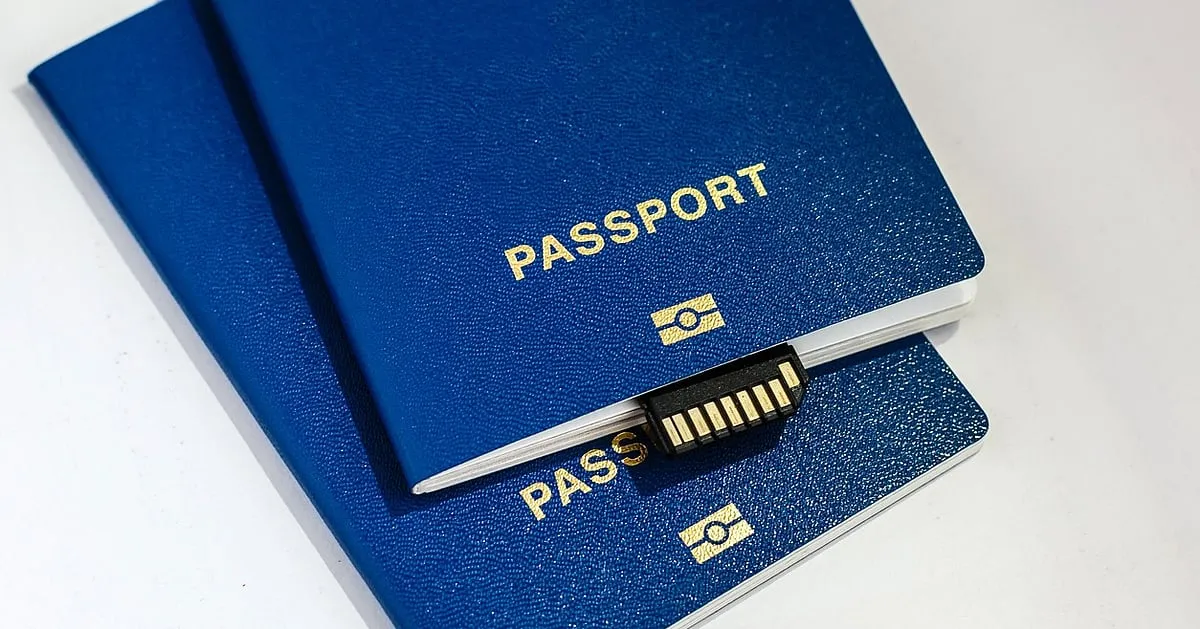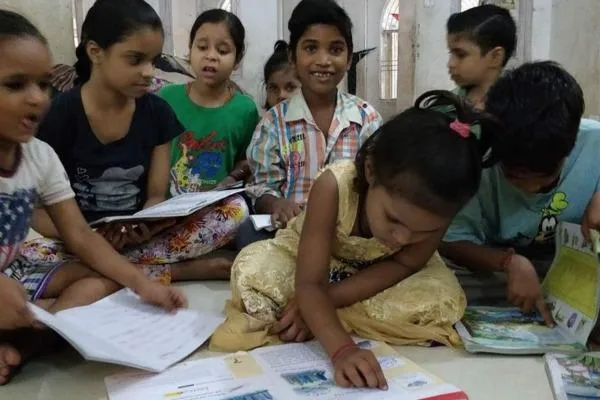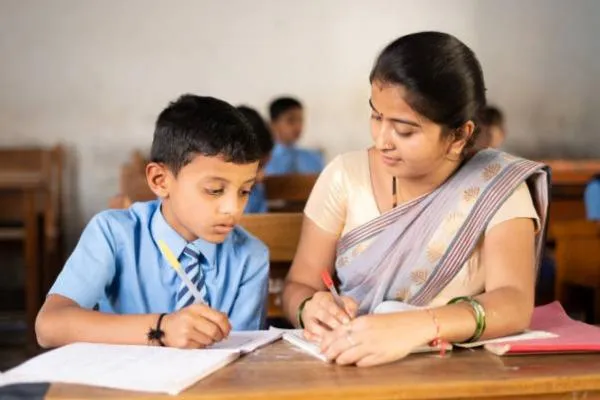
How to Apply for an E-Passport in India: Step-by-Step Guide 2025
How to Apply for an E-Passport in India: Step-by-Step Guide 2025
India has taken a significant step toward modernizing international travel by rolling out e-passports across select cities, with a nationwide launch planned by mid-2025. These advanced passports, equipped with an RFID (Radio Frequency Identification) chip and antenna, securely store biometric and personal data, including fingerprints and facial recognition details. Compliant with International Civil Aviation Organization (ICAO) standards, e-passports enhance security, reduce fraud, and streamline immigration processes globally. As of September 2025, over 20,700 e-passports have been issued in Tamil Nadu alone, with pilot programs active in cities like Delhi, Chennai, and Hyderabad. This comprehensive guide provides a detailed, step-by-step process for applying for an e-passport in India, along with key insights into its benefits, requirements, and tips for a smooth application experience.

What Is an E-Passport?
An e-passport is a biometric passport that combines traditional paper documentation with advanced electronic features. Embedded with an RFID chip and antenna in its cover, it securely stores the holder’s personal details—such as name, date of birth, and nationality—along with biometric data like fingerprints and facial recognition. The chip is protected by encryption mechanisms, including Basic Access Control (BAC), Passive Authentication (PA), and Extended Access Control (EAC), ensuring compliance with global security standards set by the ICAO. A small gold-colored symbol on the passport’s front cover distinguishes it from regular passports.
Introduced under the Passport Seva Programme 2.0, launched on April 1, 2024, e-passports aim to reduce identity fraud, enhance border security, and expedite immigration through contactless verification at e-gates. Produced at the India Security Press in Nashik, these passports support the government’s Make in India initiative while aligning with the Digital India vision. The rollout began in 13 cities, including Nagpur, Bhubaneswar, Chennai, and Delhi, with plans to expand to all Passport Seva Kendras (PSKs) and Post Office Passport Seva Kendras (POPSKs) by mid-2025.
Benefits of an E-Passport
E-passports offer several advantages over traditional passports, making them a significant upgrade for Indian travelers. Here are the key benefits:
- Enhanced Security: The RFID chip uses Public Key Infrastructure (PKI) to digitally sign data, making it nearly impossible to forge or tamper with, reducing identity fraud risks.
- Faster Immigration: Contactless chip reading allows automated e-gate verification, cutting down wait times at international borders.
- Global Acceptance: Compliant with ICAO standards, e-passports are recognized by over 120 countries, including the US, Canada, and Japan.
- Data Protection: Encrypted biometric data ensures privacy, with access restricted to authorized immigration officials.
- Seamless Travel Experience: E-passports align with global trends, enabling smoother travel processes and reducing manual document checks.
These features make e-passports a game-changer for India’s 1.5 crore annual international travelers, as reported by the Ministry of External Affairs (MEA) in 2024. The initiative also positions India among global leaders in secure travel documentation.
Step-by-Step Guide to Applying for an E-Passport
Applying for an e-passport in India is straightforward and follows a similar process to regular passport applications, with the added step of biometric enrollment. Here’s a detailed guide to navigate the Passport Seva Portal and secure your e-passport:
- Register on the Passport Seva Portal: Visit the Passport Seva Online Portal and click “Register Now” on the homepage. Provide your email, mobile number, and personal details to create an account.
- Log In and Start Application: Log in using your credentials and select “Apply for Fresh Passport/Re-issue of Passport.” Choose “Fresh Issuance” if you’ve never held an Ordinary, Diplomatic, or Official Passport; otherwise, select “Re-issue” for renewals.
- Fill Application Form: Enter required details, including name, address, date of birth, and nationality. For minors, include parents’ passport details and a birth certificate. Double-check for accuracy to avoid delays.
- Pay and Schedule Appointment: Under “View Saved/Submitted Applications,” click “Pay and Schedule Appointment.” Online payment via credit/debit card, UPI, or net banking is mandatory. Fees start at INR 1,500 for a 36-page passport (normal) and INR 3,500 for Tatkal.
- Save Appointment Confirmation: After payment, print the receipt containing the Application Reference Number (ARN) or Appointment Number. An SMS with appointment details will also be sent for reference.
- Visit PSK or RPO: On the scheduled date, visit the selected Passport Seva Kendra (PSK) or Regional Passport Office (RPO) with original documents, including proof of address, identity, and date of birth. Biometric data (fingerprints and photograph) will be captured during this visit.
- Track Application Status: Use the ARN to monitor your application on the Passport Seva Portal’s Status Tracker. Normal applications take 2–4 weeks, while Tatkal applications are processed in 1–3 days, subject to police verification.
The e-passport is delivered via India Post to your registered address once processed. Ensure all documents are self-attested and carry originals for verification to avoid rejection.
Required Documents for E-Passport Application
To complete the e-passport application, you’ll need to submit specific documents during your PSK/RPO visit. Here’s a list of essential documents:
- Proof of Identity: Aadhaar card, voter ID, or PAN card with a photograph.
- Proof of Address: Aadhaar card, utility bill, or bank statement (not older than three months).
- Proof of Date of Birth: Birth certificate, school leaving certificate, or PAN card.
- Passport-Sized Photographs: Recent photos, though biometrics are captured at the PSK.
- Previous Passport (if applicable): For re-issue applications, submit the old passport.
- For Minors: Birth certificate, parents’ passports, and a signed Annexure for parental consent.
Using DigiLocker to upload e-verified documents can expedite verification. Ensure all documents are valid and match the application details to prevent delays, as errors were reported in 12% of applications in 2024, per MEA data.
Availability and Rollout of E-Passports in India
As of September 2025, e-passports are issued in 13 cities, including Amritsar, Bhubaneswar, Chennai, Delhi, Goa, Hyderabad, Jaipur, Jammu, Nagpur, Raipur, Ranchi, Shimla, and Surat. The rollout, initiated as a pilot on April 1, 2024, under Passport Seva Programme 2.0, has been successful, with Tamil Nadu issuing over 20,700 e-passports by March 2025. The MEA aims to extend the service to all 37 Regional Passport Offices and 600+ PSKs/POPSKs by mid-2025, covering an estimated 2 crore annual passport applicants.
Existing passport holders are not required to replace valid passports, but new or renewal applications in eligible cities receive e-passports by default. The transition is part of a global trend, with over 120 countries adopting biometric passports to meet ICAO standards, enhancing India’s alignment with international travel norms.
Tips for a Smooth E-Passport Application
To ensure a hassle-free e-passport application process, consider these practical tips:
- Verify Details: Double-check all entered information on the Passport Seva Portal to avoid errors, which can delay processing.
- Use DigiLocker: Upload e-verified documents via DigiLocker for faster verification and reduced paperwork.
- Book Early Appointments: Schedule appointments at less crowded PSKs, like those in suburban areas, to minimize wait times.
- Track Status Regularly: Monitor your application status using the ARN to stay updated on progress and address issues promptly.
- Prepare for Biometrics: Ensure your fingerprints and photographs are taken clearly at the PSK, as poor-quality biometrics can lead to rejections.
- Contact Helpline: For queries, call the Passport Seva helpline at 1800-258-1800 or use the “PAI” chatbot on the portal.
These tips can reduce processing time by up to 20%, according to 2024 Passport Seva data, ensuring a smoother experience for applicants.
Processing Time and Fees
Normal e-passport applications typically take 2–4 weeks, including police verification, while Tatkal applications are processed in 1–3 days, excluding verification time. Additional delays may occur for complex cases, such as adoptions or name changes, extending processing to 30 days. Fees are identical to regular passports: INR 1,500 for a 36-page passport (normal), INR 2,000 for a 60-page passport, and an additional INR 2,000 for Tatkal. Replacement of lost or damaged passports costs INR 3,000. Use the Passport Seva Portal’s fee calculator for precise amounts.
Payments must be made online via credit/debit card, UPI, or net banking. The mPassport Police App has reduced police verification time to 5–7 days, as announced by External Affairs Minister S. Jaishankar in June 2025, enhancing overall efficiency.
Comment / Reply From
You May Also Like
Popular Posts
Newsletter
Subscribe to our mailing list to get the new updates!





